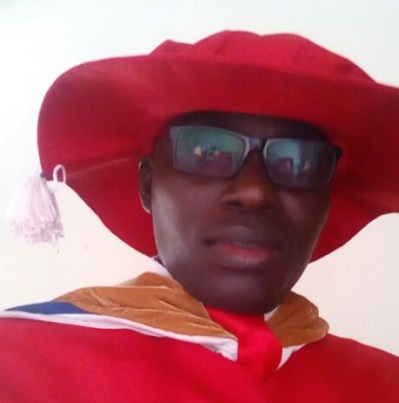
A research scientist with the Mampong Campus of the University of Education, Winneba has discovered that a strain of the microbe known as Bascillus Thuringiensis (Bt) has the capacity to extract mercury from contaminated water bodies.
The strain commonly referred to as MC28 apart from having the capacity to deal effectively with mercury in water solutions, can also deal with other contaminants such as Arsenic, Chromium and Cadmium.
Bt is a microbe naturally found in soil and makes proteins that are toxic to immature insects (larvae).
The breakthrough discovery offers some level of hope for communities in the country whose water bodies — both underground and surface has been heavily polluted due to activities of “galamsey” and agricultural practice.
Speaking exclusively to the Ghanaian Times in Accra, Dr Emmanuel Agyapong Asare said the microbe MC28 was investigated for its potential utilisation as a potential adsorbent for mercury in aqueous solutions.
He noted the Bacillus Thuringiensis MC28 having been subjected to all the necessary scientific processes, showed that its Mercury removal process was exothermic and spontaneous and thus demonstrating remarkable affinity for mercury.
As a result of the strong affinity for mercury, the Bacillus Thuringiensis could be used as an adsorbent in water treatment procedures to remove Mercury and restore waters heavily contaminated with Mercury to its pristine state.
In a period where it had been established that most water sources had been contaminated with heavy metals beyond the allowable limits set by the World Health Organisation, the MC28 would require attention from national government.
According to Dr Asare, the research which was conducted in some selected mining communities in the Wassa West Municipality of the Western Region, confirmed the fact that most water sources were contaminated as a results of “galamsey” activities.
He explained that aside mercury and cyanide which are found to be major contaminants in most surface water sources largely due to some mining activities, other agrochemicals such as organochlorines, organophosphates and synthetic pyrenthroids have also been found in higher levels in surface waters across the country due to some farming practices.
These pollutants he noted exposed people, especially those who consumed the contaminated water on daily basis to several health issues such as cancers, stroke, Parkinson’s disease among others due to their known or suspected carcinogenicity.
He said even though talcum could be used as an inorganic adsorbent to purge our water bodies of some of these contaminants if properly investigated, it had been reported to have been linked to diverse cancers and its application in water treatment protocols should be avoided.
The research scientist said in line with this, attention must be focused on developing cheap adsorbents from agricultural wastes of plant origin which waste abound in most local communities.
“The findings of this research shows that the contamination issues with our water resources could be solved if funding is made available by shareholders to build water treatment facilities that would incorporate the findings of this research into their operations,” he emphasised.
Dr Asare explained that once MC28 was adopted, people especially those in mining communities stood to have improved health, improved productivity in their commercial activities and some level of financial liberty.
This he said was because the unwanted health scenarios from these pollutants would be dealt with and people would no longer be exposed to the unacceptably high levels of the pollutants.
“Their scarce financial muscles would no longer be used to battle diseases which would have developed after the contaminated water has been consumed. After the findings of this research have been used to treat water for consumption, people would be disease-free and would have ample time for their commercial activities,” he said.
By Cliff Ekuful







